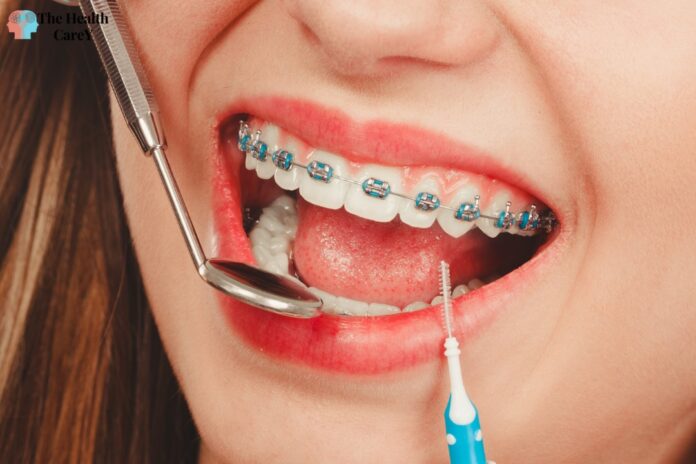Deep cleaning teeth is a dental procedure that removes plaque and tartar buildup from below the gum line. While it is an effective way to improve oral hygiene, it also has drawbacks. This article will explore the disadvantages of deep cleaning teeth, so you can decide whether it is right for you.
One of the main disadvantages of deep cleaning teeth is the potential for nerve damage. This can occur when the dentist or hygienist is using instruments to remove plaque and tartar from below the gum line. If the device comes into contact with the nerve, it can cause pain, sensitivity, and permanent damage.
Another potential drawback of deep cleaning teeth is that it does not guarantee the reattachment of your gums to your teeth. This means that even after the procedure, you may still experience gum recession and other issues related to periodontal disease.
What is Deep Cleaning Teeth?
If you have been told you need a deep cleaning tooth, you may wonder what it is and why it’s necessary. Deep cleaning teeth, also known as scaling and root planing, is a dental procedure beyond regular cleaning to remove plaque and tartar buildup from below the gum line.
Plaque is a sticky film of bacteria that forms on teeth and can cause tooth decay and gum disease if not removed. Tartar, also called calculus, is hardened plaque that cannot be removed by brushing or flossing alone. When plaque and tartar accumulate below the gum line, they can cause inflammation and infection of the gums, known as gingivitis.
During a deep cleaning teeth procedure, your dentist or dental hygienist will use special tools to remove plaque and tartar from the surfaces of your teeth and roots. This may involve scaling, which is the removal of plaque and tartar from above and below the gum line, and root planing, which is smoothing rough spots on the roots of teeth to prevent future buildup.
Deep cleaning teeth may be recommended if you have signs of gingivitis or periodontitis, a more advanced form of gum disease. Symptoms of gum disease can include red, swollen, or bleeding gums, bad breath, and receding gums. Your dentist may also recommend deep cleaning teeth if you have a history of gum disease or if you have not had a cleaning in a long time.
Overall, deep cleaning teeth can help improve the health of your gums and prevent future dental problems. However, it’s essential to follow good oral hygiene habits, such as brushing twice a day, flossing daily, and visiting your dentist regularly, to maintain the health of your teeth and gums.
Disadvantages of Deep Cleaning Teeth
If you’re considering getting a deep cleaning for your teeth, it’s essential to be aware of the potential disadvantages. Here are some of the most common disadvantages of deep cleaning teeth:
Pain and Sensitivity
After a deep cleaning, you may experience pain and sensitivity in your teeth and gums. This is a common side effect of the procedure and can last several days. Your dentist may recommend over-the-counter pain relievers or prescribe a local anesthetic to manage the pain and sensitivity.
Inflammation and Swelling
Another common side effect of deep cleaning teeth is inflammation and swelling of the gums. This can make it difficult to eat or speak, and it may require you to take time off work or other activities. To manage the inflammation and swelling, your dentist may recommend applying ice to the affected area and taking over-the-counter anti-inflammatory medications.
Nerve Damage
In rare cases, deep cleaning teeth can cause nerve damage. This can result in persistent dental sensitivity or other issues. To minimize the risk of nerve damage, choosing a qualified dentist with experience performing deep cleanings is essential.
Cost
Deep cleaning teeth can be expensive, especially if you don’t have dental insurance. The cost can vary depending on the severity of your gum disease and the location of your dentist. To save money on deep cleaning teeth, consider shopping for different dentists and comparing prices.
Side Effects
In addition to pain, sensitivity, inflammation, and swelling, deep cleaning teeth has other potential side effects. These can include bleeding gums, bad breath, and a metallic taste in your mouth. To minimize these side effects, following your dentist’s instructions for aftercare is essential.
Overall, deep cleaning teeth can be an effective way to treat gum disease and improve your oral health. However, it’s essential to be aware of the potential disadvantages and to choose a qualified dentist who can minimize the risks. By taking these steps, you can ensure that you get the best possible results from your deep cleaning.

Alternatives to Deep Cleaning Teeth
If you want to avoid deep cleaning teeth, there are several alternatives that you can consider. Here are some of the most effective options:
Prevention
Prevention is always better than cure. You can prevent the need for deep cleaning teeth by practicing good oral hygiene. Brush your teeth twice a day and floss daily. Avoid sugary and acidic foods and drinks, and quit smoking. Regular dental check-ups can also help identify potential problems before they become serious.
Regular Cleaning
Regular cleaning is an effective alternative to deep cleaning teeth. It involves removing plaque and tartar buildup from your teeth and gums. Regular cleaning can be done at home or by a dental professional. Getting professional cleaning every six months is recommended to keep your teeth and gums healthy.
Fluoride Treatment
Fluoride treatment is another alternative to deep cleaning teeth. Fluoride is a mineral that strengthens your teeth and prevents tooth decay. Fluoride treatment involves applying fluoride to your teeth to strengthen the enamel and prevent cavities. It is a quick and painless procedure that can be done at your dentist’s office.
Salt Water Rinse
A salt water rinse is a natural alternative to deep cleaning teeth. It helps reduce inflammation and kill bacteria in your mouth. Mix a teaspoon of salt in warm water and rinse your mouth with it for 30 seconds. Spit the water out and repeat the process a few times a day.
Therapy
Therapy is an alternative to deep cleaning teeth for people with gum disease. It involves scaling and root planing, a non-surgical procedure that removes plaque and tartar buildup from your teeth and gums. It also involves smoothing the root surfaces to prevent further buildup. A dental professional can do therapy and may require several visits.
In conclusion, deep cleaning teeth is not the only option for maintaining good oral health. You can choose from several alternatives: prevention, regular cleaning, fluoride treatment, salt water rinse, and therapy. Consult with your dentist to determine which option is best for you.
Conclusion
In conclusion, deep cleaning teeth is a crucial process that helps to prevent gum diseases and maintain good oral health. However, like any other dental procedure, it has its disadvantages that you must be aware of before undergoing the process.
One of the main disadvantages of deep cleaning teeth is nerve damage, which can occur during the process. This can cause discomfort and pain in the affected area, making it difficult to eat or drink for some time. Additionally, deep cleaning teeth does not guarantee the reattachment of your gums to your teeth, and it may cause them to recede.
Another disadvantage of deep cleaning teeth is the possibility of infection, especially if you have a weak immune system. Exposure to harmful bacteria during the process can lead to infections that can cause further damage to your oral health.
It is also important to note that deep cleaning teeth can be time-consuming and expensive, depending on the severity of your gum disease. However, the procedure’s benefits far outweigh the disadvantages, and it is a necessary step in maintaining good dental hygiene.
To avoid the disadvantages of deep cleaning teeth, it is essential to practice good oral hygiene, including brushing your teeth twice a day and flossing regularly. This can help prevent gum disease and reduce the need for deep cleaning teeth.
In summary, while deep cleaning teeth has disadvantages, it is necessary to maintain good oral health and prevent gum disease. By taking care of your teeth and gums through regular brushing and flossing, you can reduce the need for deep cleaning teeth and avoid the associated risks.
Also Read:
How Much Does Dental Bonding Cost?
Why Dental Implants Are Expensive?






















